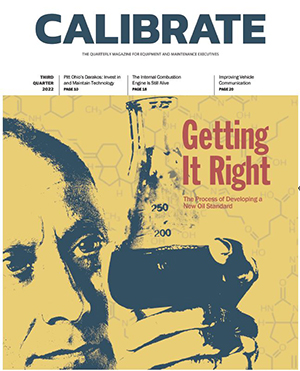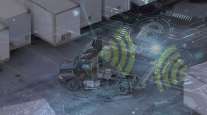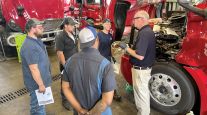Features Editor
When It Comes to Technological Innovation, Trust the Process

[Find the latest in equipment & maintenance: Explore this quarter's issue of Calibrate]
It’s not about the destination. It’s about the process. We’ve all heard that phrase in some fashion: in sports, learning a trade and even in developing a new oil category. The meaning argues the totality of the journey makes the individual more grateful for the experience.
That notion was the focal point of my conversation with Karin Haumann, OEM technical manager for Shell Lubricant Solutions this past spring at American Trucking Associations’ Technology & Maintenance Council Annual Meeting in Orlando, Fla.
Haumann and other industry colleagues, along with the American Petroleum Institute, were in the developmental stages of introducing the new diesel engine oil category, Proposed Category 12. TThe time-consuming, laborious stage is necessary to make sure all agencies and involved parties are on the same page, and all testing data is correct and verified.

Freeze
“People don’t understand that we have to turn an engine into a test apparatus where we are testing oil,” she explained about that part of the process. “It’s a test apparatus with critical parts that affect the severity of the test. And that process takes years. It’s a development.”
As for processes, they are not just aimed at a new destination. They can also become a road toward improvement.
More Q3 Calibrate
►Getting It Right: Developing New Oil Standards
►Cameras on Windshield Remain FMCSA-Compliant
►Five Questions: Taki Darakos, Pitt Ohio
►TMC Corner: Carriers Challenged to Take Action
►Baxter: Internal Combustion Engine's Demise May Be Greatly Exaggerated
Explore the Issue!
With much chatter and movement in the market of electric vehicles, there’s still much advancement in the world of the internal combustion engine. Especially with the use of alternative fuel sources and — still king of motor fuels — diesel, innovation remains alive and well .
Currently, there are no signs we’re veering near the end of the diesel age … not yet. The arguably most important invention of the past several centuries has adapted to the many changes in the world of transportation such as the introduction of technology (i.e. engine control units, diagnostics). It is that premise that lays out the need for fleets and manufacturers to work together to create more standardizations of the recommended practices that support effective vehicle communication.
In the grand scope of fleet maintenance, it’s difficult, yet not impossible, to reach a consensus on any concept. The process seems long and standstill for those that are in the middle of it. However, the outcome hopefully reminds us of the work involved in making the trucking industry a better place.
Want more news? Listen to today's daily briefing below or go here for more info:





